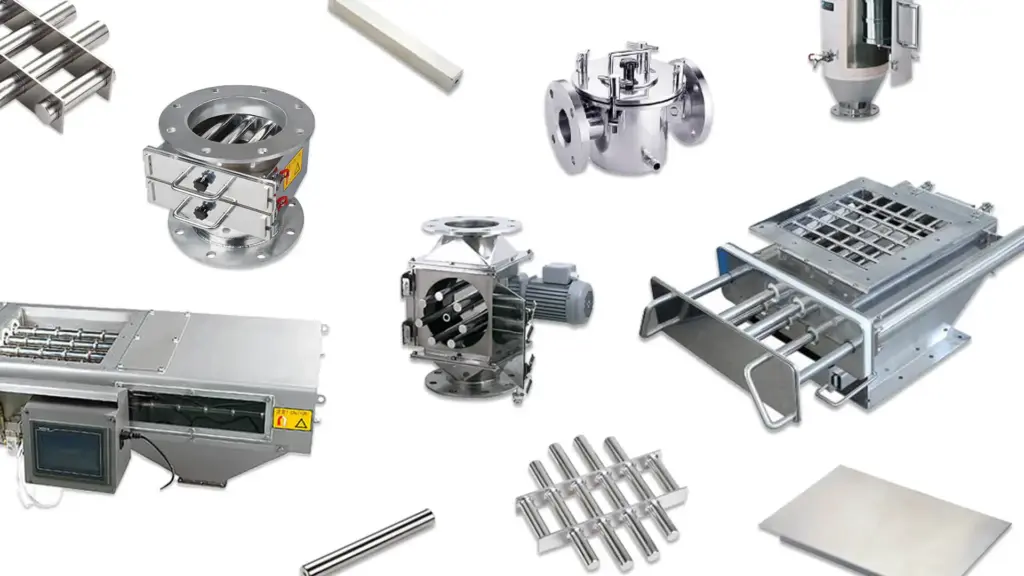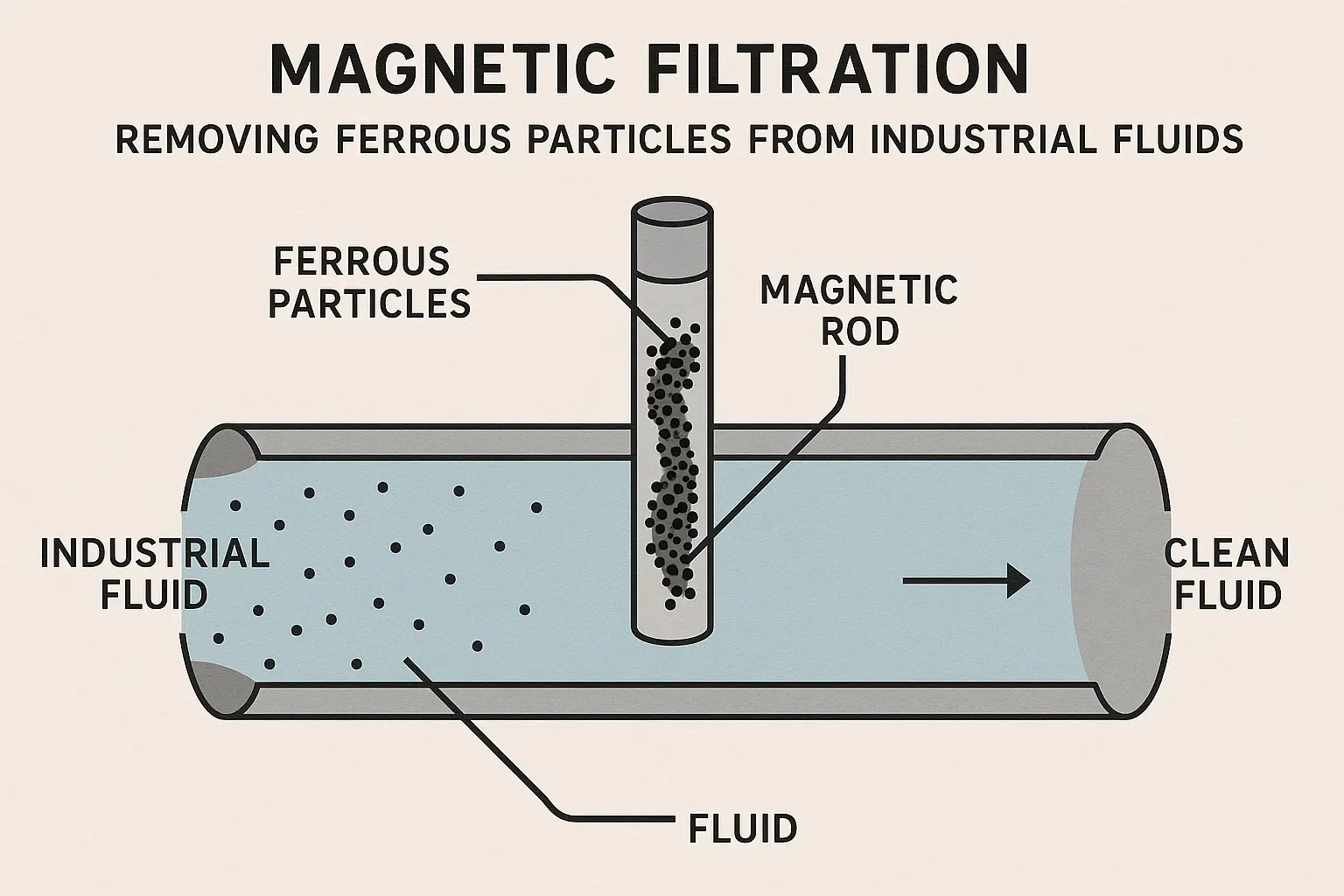Magnetic filtration, also known as magnetic separation, is a process designed to remove ferrous contaminants from liquids, coolants, and slurries. The fluid flows around a high-intensity magnetic core or rod, and ferrous particles are drawn out of the stream and held in a magnetic trap. Once full, the filter can be cleaned and reused, providing a sustainable and cost-effective solution for industrial fluid management.
How Do Magnetic Filters Work?
Magnetic filters use neodymium magnets that generate extremely strong magnetic fields, capable of capturing virtually all ferrous particles, even down to micron-level contamination.
- Step 1: The contaminated liquid or slurry passes through or around the magnetic filter.
- Step 2: Ferrous particles are attracted to and held by the magnetic field.
- Step 3: Clean fluid continues uninterrupted, ensuring operational efficiency.
- Step 4: Once the magnetic core is saturated, it is removed, cleaned, and reinstalled.
Because there is no traditional filter media, flow is never blocked, and the risk of pressure drop or burst filters is eliminated.
Common Configurations of Magnetic Filters
Magnetic filtration technology comes in multiple designs to fit different industrial processes:
- Magnetic Plugs: Installed in machinery to capture contaminants for quick flushing.
- Flow-Through Filters: Fluids pass through magnetized slots, ensuring continuous flow.
- Rod Magnets: Extend into tanks and canisters to capture metallic particles in high-volume applications.
Industrial Applications of Magnetic Filtration
Magnetic filtration is used across industries where fluid purity is critical:
- Automotive & Manufacturing: Protects cutting fluids, coolants, and lubricants in CNC machining and grinding operations.
- Food & Beverage: Ensures product safety by removing ferrous particles during liquid processing.
- Oil & Gas / Petrochemical: Removes metallic debris from slurries and hydraulic systems.
- Renewable Energy: Extends the life of hydraulic and lubrication systems in wind turbines and industrial gearboxes.

Advantages of Magnetic Filtration
Magnetic filtration offers significant operational and environmental benefits:
- Environmentally Friendly: Contaminants are fully recyclable, and fluid life is extended.
- Cost-Effective: No disposable media, no recurring replacement or disposal costs.
- Low Maintenance: Options include manually cleaned or automated self-cleaning systems.
- Continuous Productivity: Uninterrupted flow ensures high efficiency in critical processes.
Future Trends in Magnetic Filtration
The next generation of magnetic filtration is evolving toward:
- Automated Self-Cleaning Systems that reduce downtime and labor costs.
- Integration with IoT Monitoring, enabling predictive maintenance and contamination tracking.
- Nano-Particle Capture Technologies that address increasingly fine contaminants in high-precision industries.
- Sustainability-Focused Designs that reduce energy use and support closed-loop recycling.
Conclusion
Magnetic filtration is more than a method of fluid cleaning—it is a strategic investment for industries that demand high reliability, cost efficiency, and environmental responsibility. By ensuring cleaner fluids, reducing downtime, and lowering disposal costs, magnetic filters deliver measurable value across multiple sectors.


Leave a Reply